ENDOCRINE SYSTEM Human body is controlled by 2

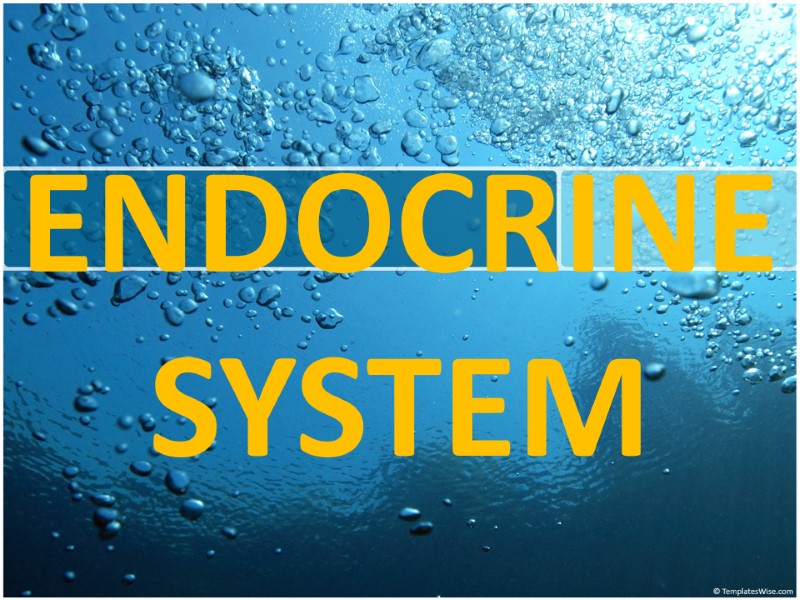
ENDOCRINE SYSTEM
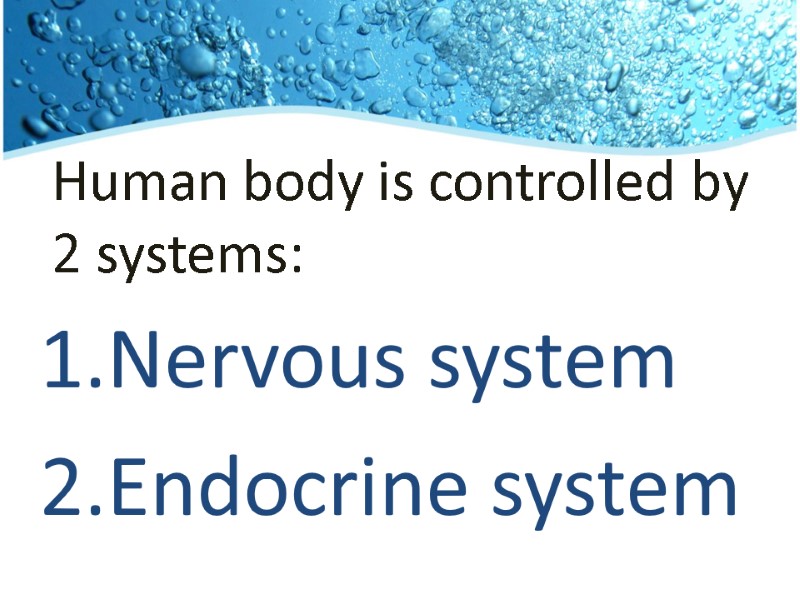
Human body is controlled by 2 systems: Nervous system Endocrine system
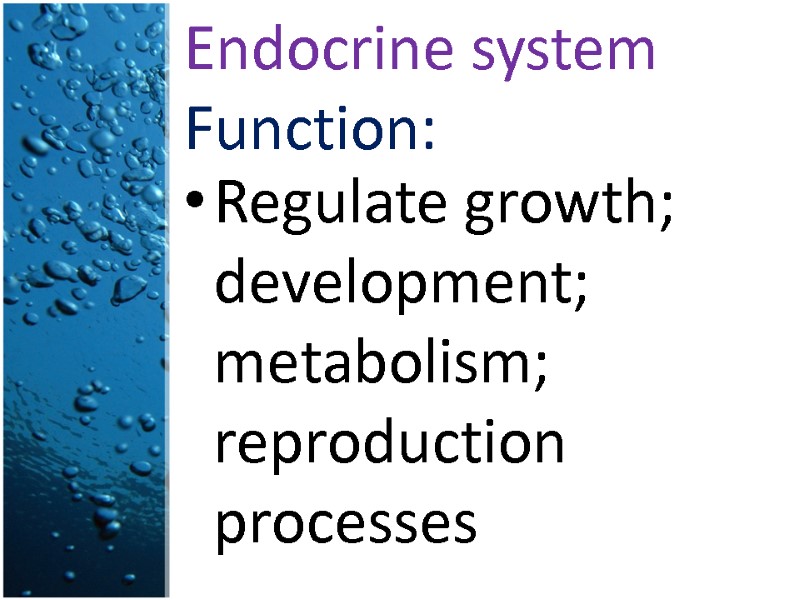
Endocrine system Function: Regulate growth; development; metabolism; reproduction processes
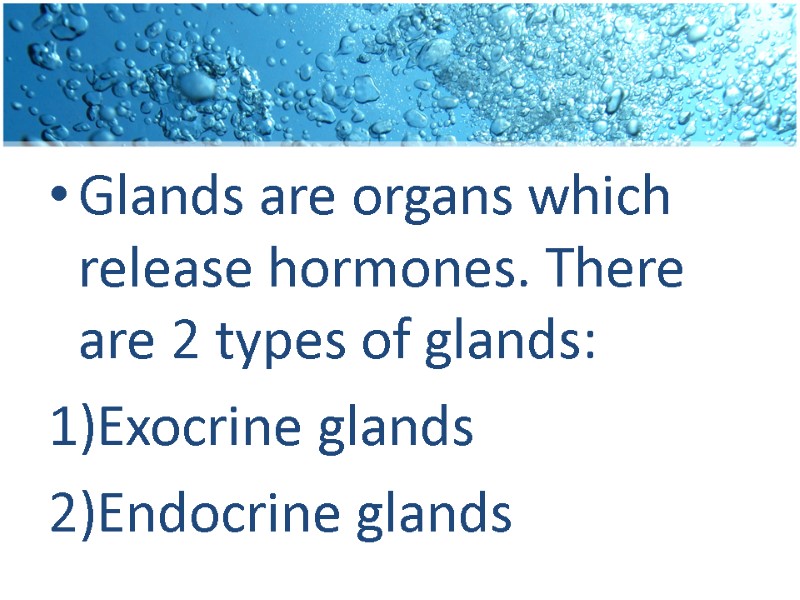
Glands are organs which release hormones. There are 2 types of glands: Exocrine glands Endocrine glands
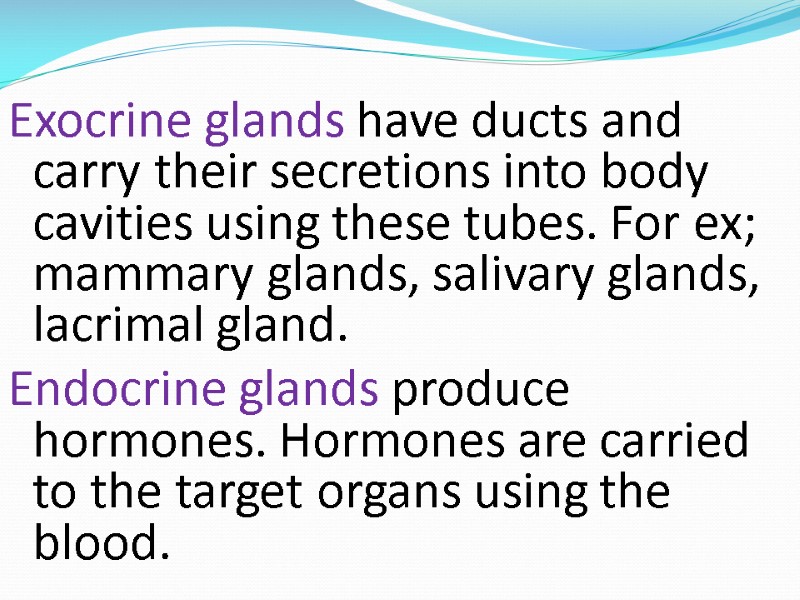
Exocrine glands have ducts and carry their secretions into body cavities using these tubes. For ex; mammary glands, salivary glands, lacrimal gland. Endocrine glands produce hormones. Hormones are carried to the target organs using the blood.
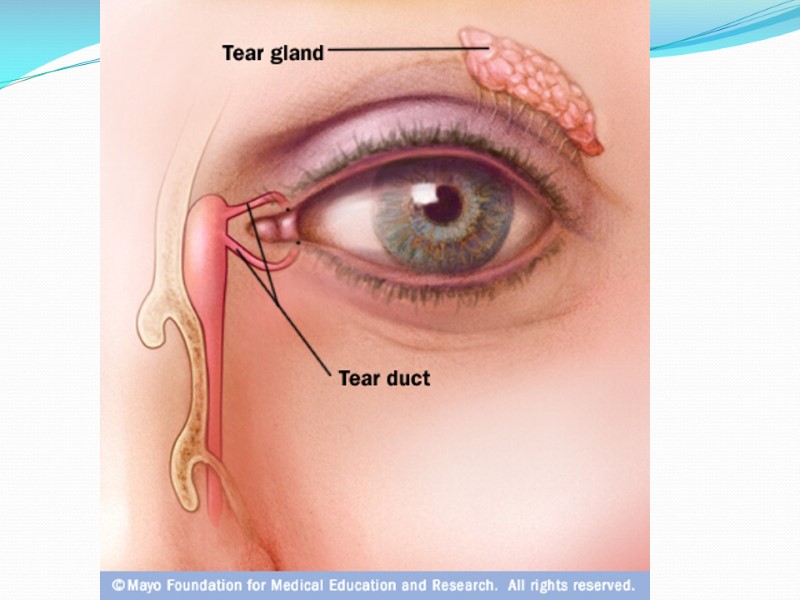
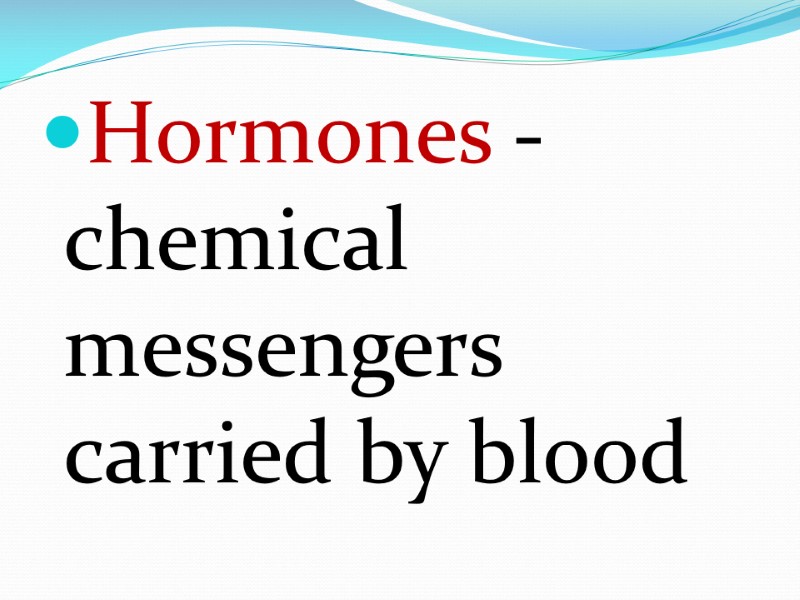
Hormones - chemical messengers carried by blood
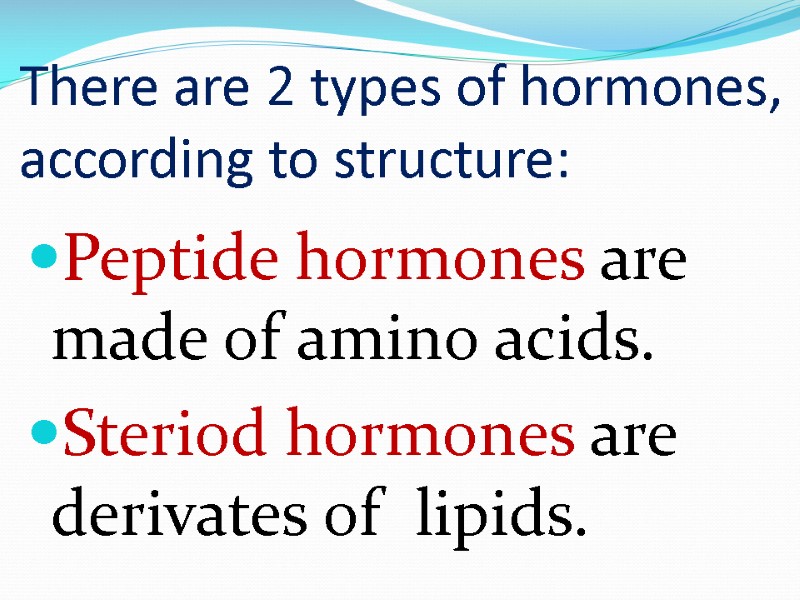
There are 2 types of hormones, according to structure: Peptide hormones are made of amino acids. Steriod hormones are derivates of lipids.
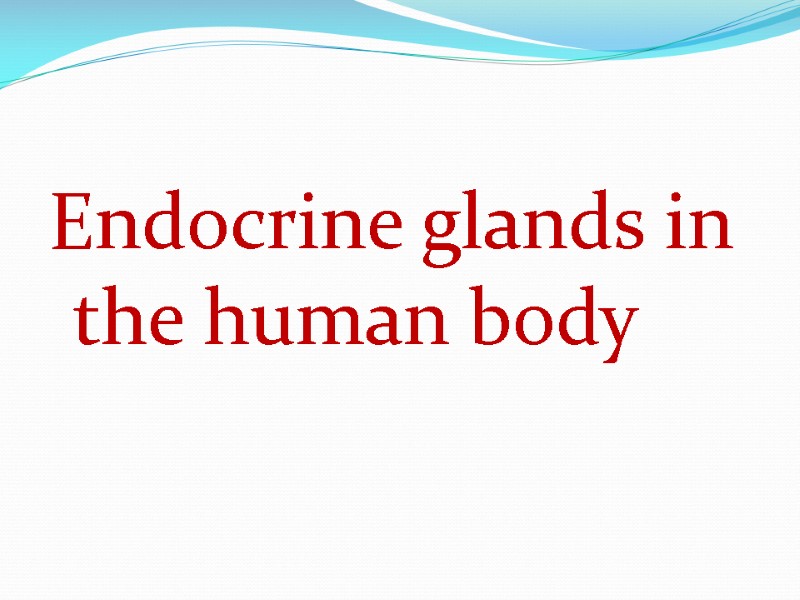
Endocrine glands in the human body
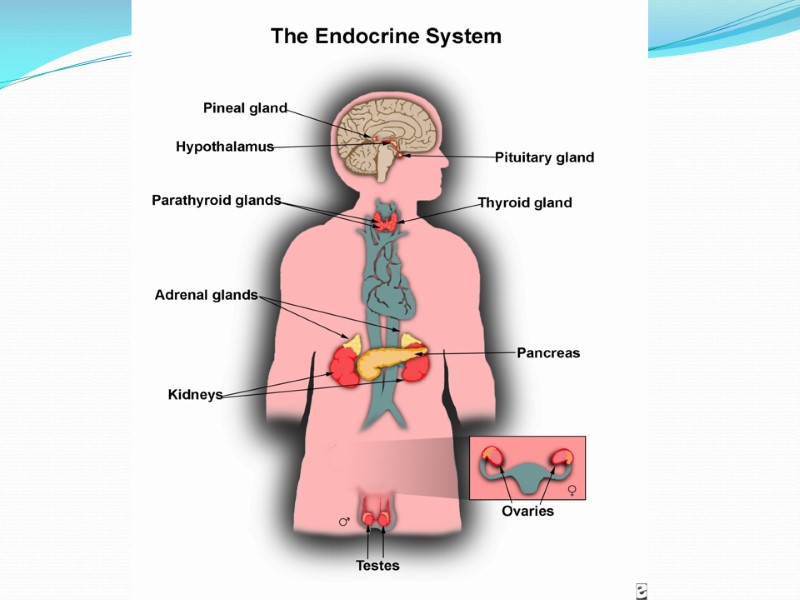
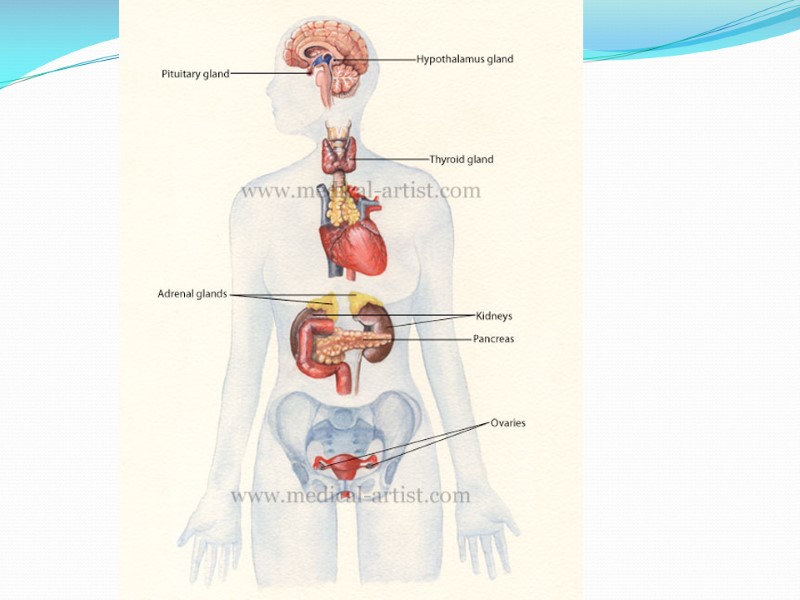
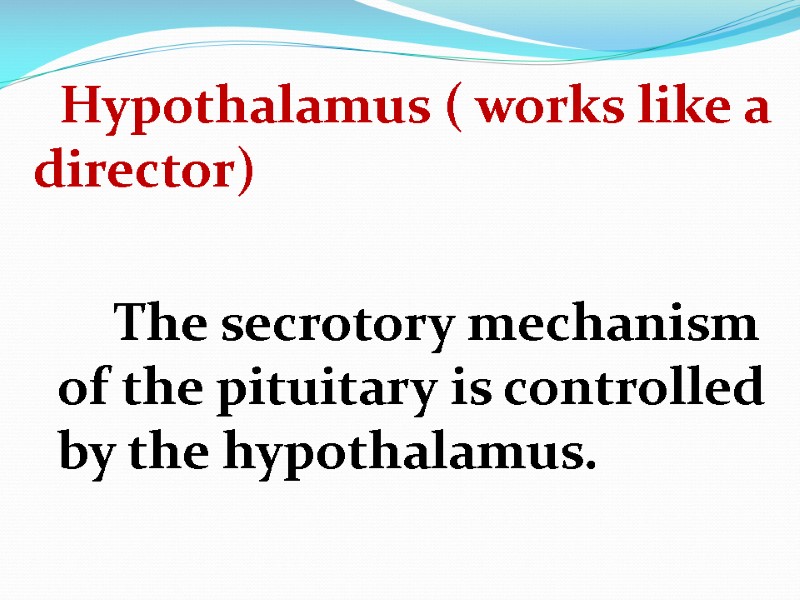
Hypothalamus ( works like a director) The secrotory mechanism of the pituitary is controlled by the hypothalamus.
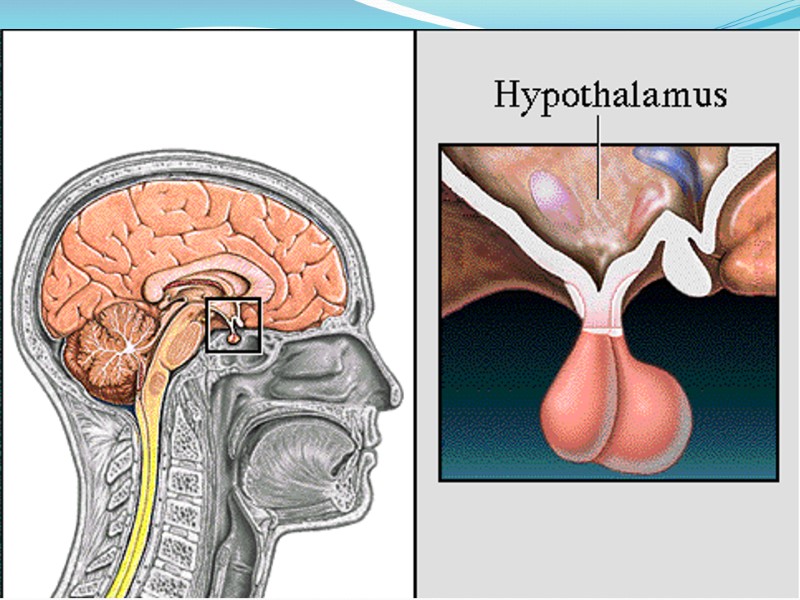
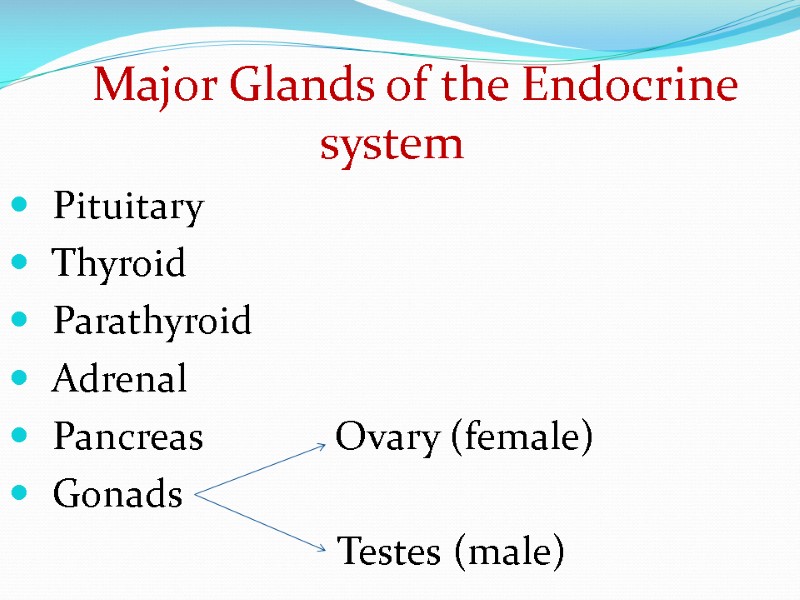
Major Glands of the Endocrine system Pituitary Thyroid Parathyroid Adrenal Pancreas Ovary (female) Gonads Testes (male)
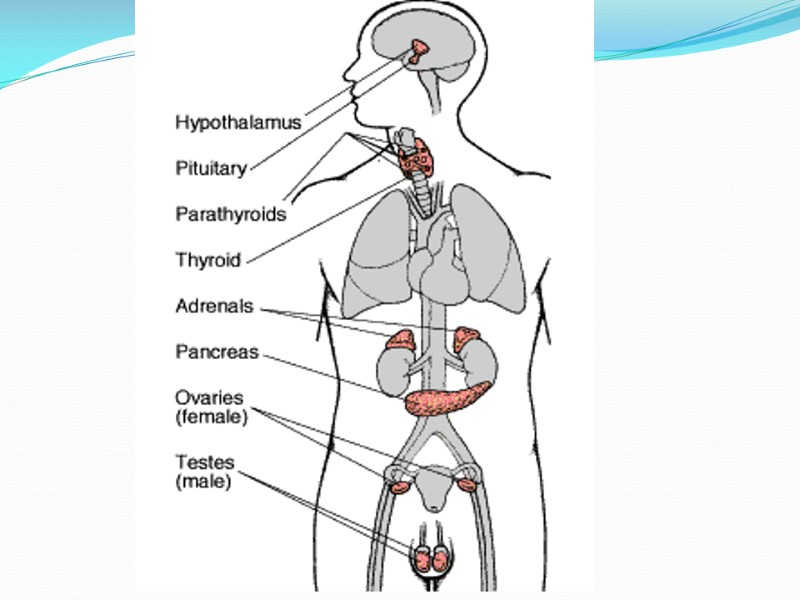
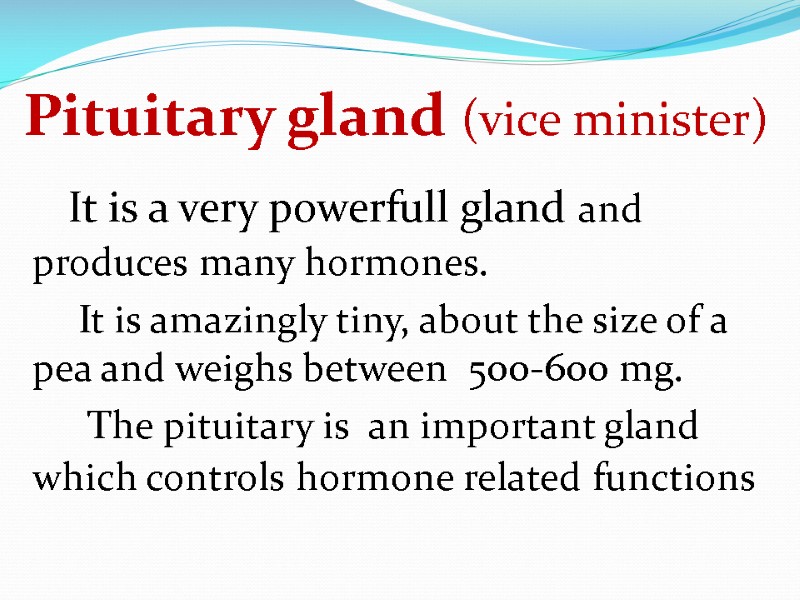
Pituitary gland (vice minister) It is a very powerfull gland and produces many hormones. It is amazingly tiny, about the size of a pea and weighs between 500-600 mg. The pituitary is an important gland which controls hormone related functions
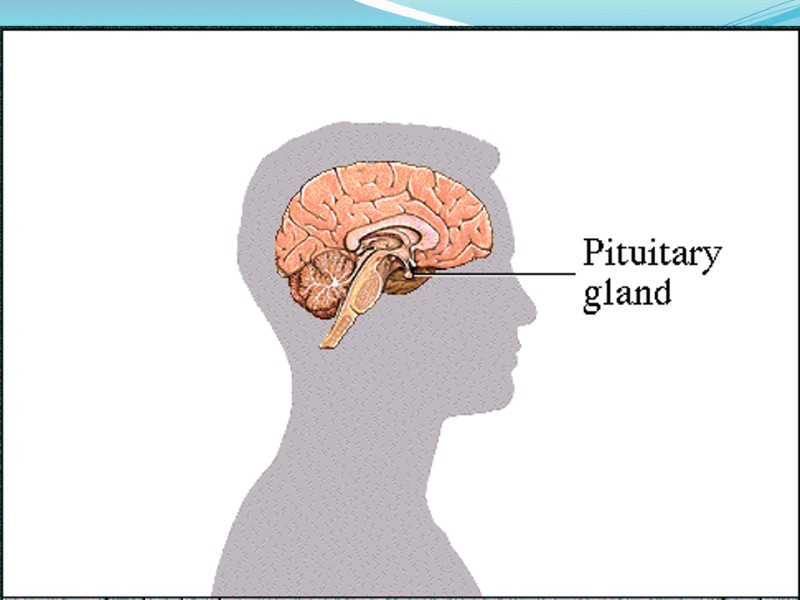
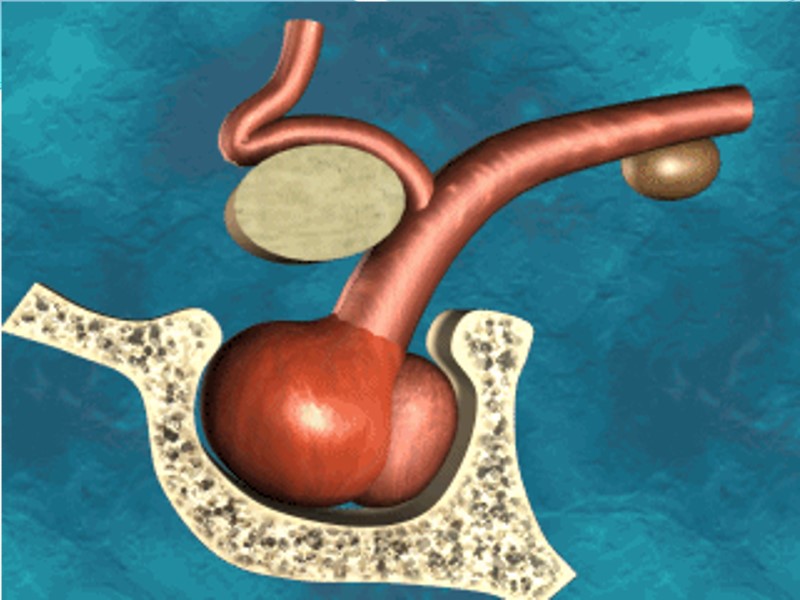
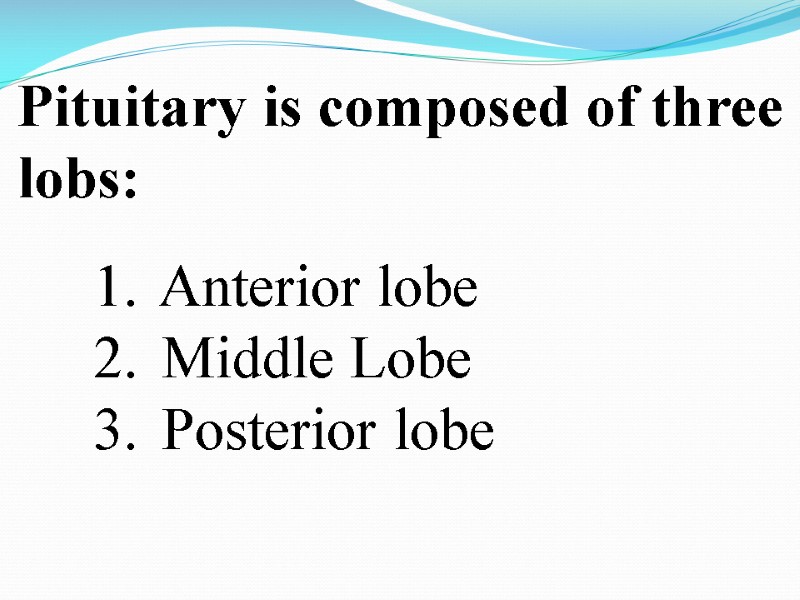
Pituitary is composed of three lobs: Anterior lobe Middle Lobe Posterior lobe
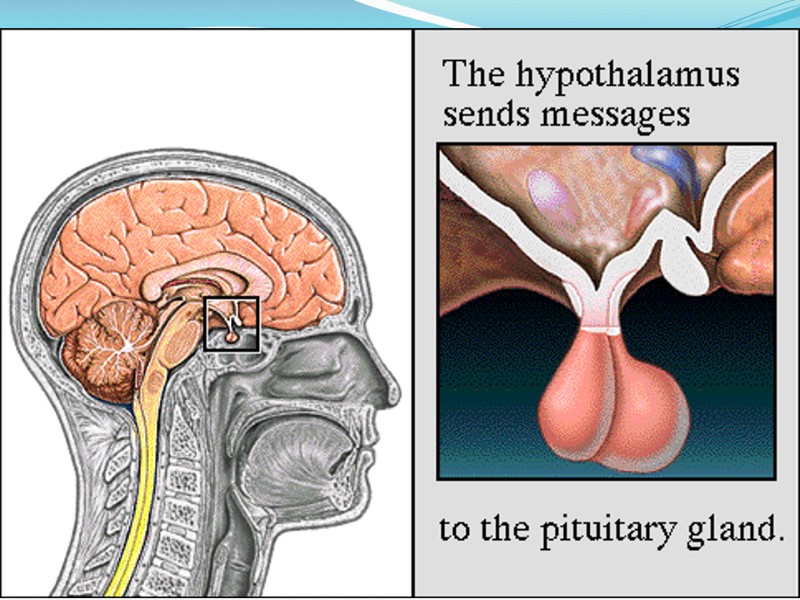
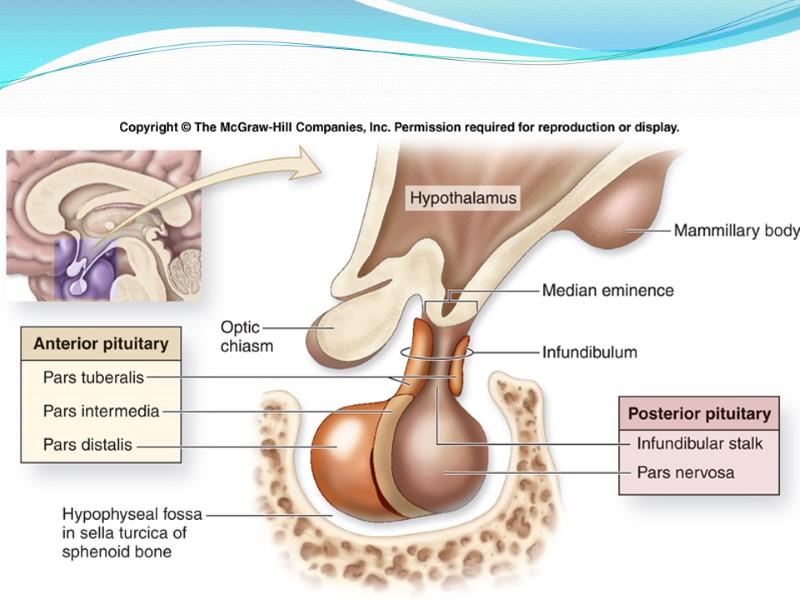
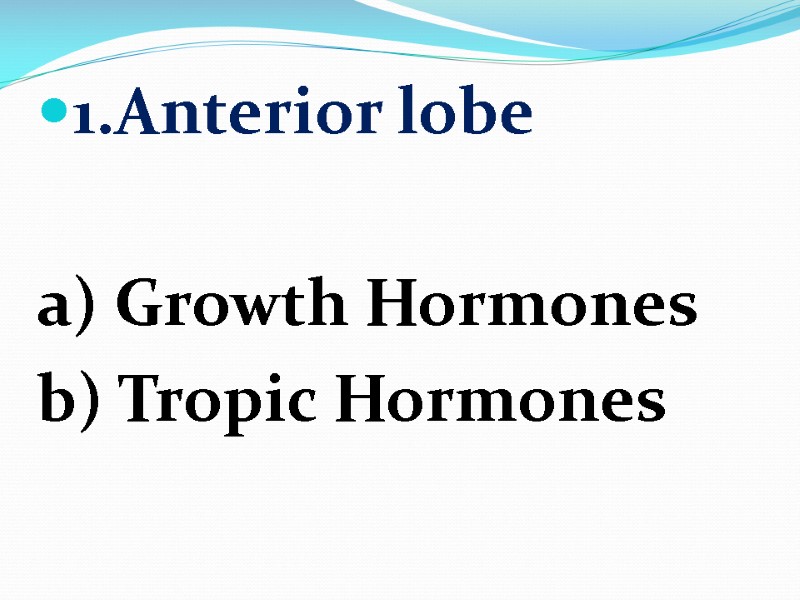
1.Anterior lobe a) Growth Hormones b) Tropic Hormones
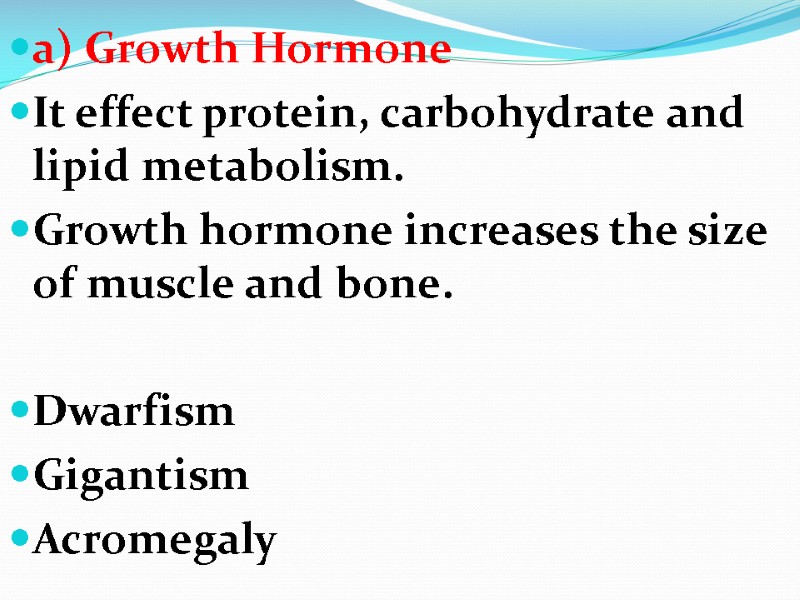
a) Growth Hormone It effect protein, carbohydrate and lipid metabolism. Growth hormone increases the size of muscle and bone. Dwarfism Gigantism Acromegaly
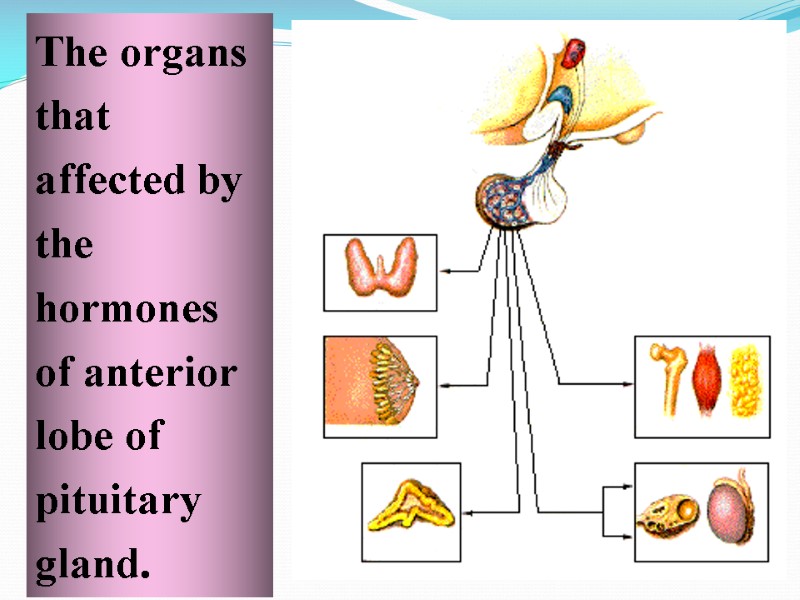
The organs that affected by the hormones of anterior lobe of pituitary gland.
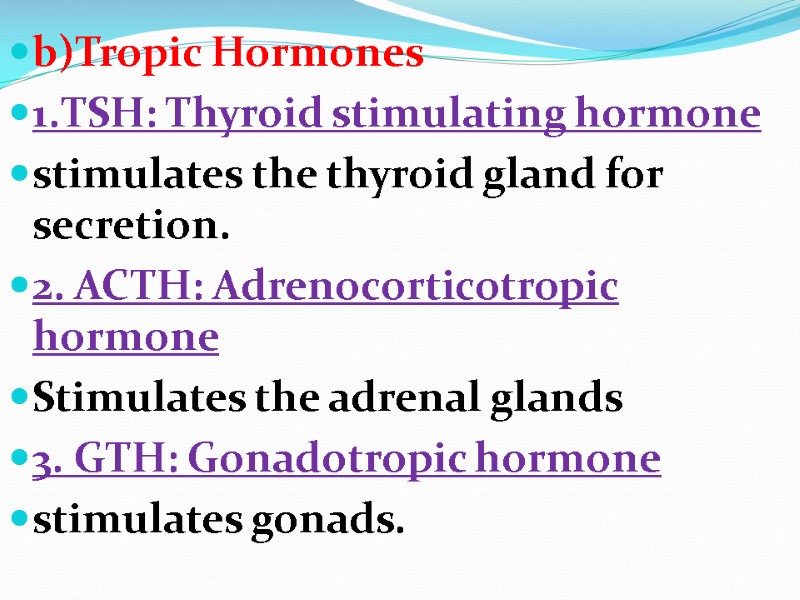
b)Tropic Hormones 1.TSH: Thyroid stimulating hormone stimulates the thyroid gland for secretion. 2. ACTH: Adrenocorticotropic hormone Stimulates the adrenal glands 3. GTH: Gonadotropic hormone stimulates gonads.
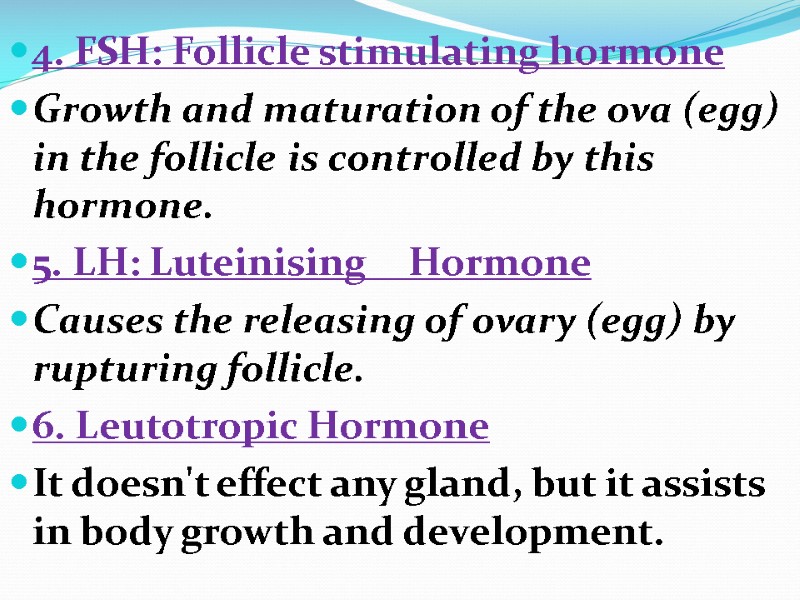
4. FSH: Follicle stimulating hormone Growth and maturation of the ova (egg) in the follicle is controlled by this hormone. 5. LH: Luteinising Hormone Causes the releasing of ovary (egg) by rupturing follicle. 6. Leutotropic Hormone It doesn't effect any gland, but it assists in body growth and development.
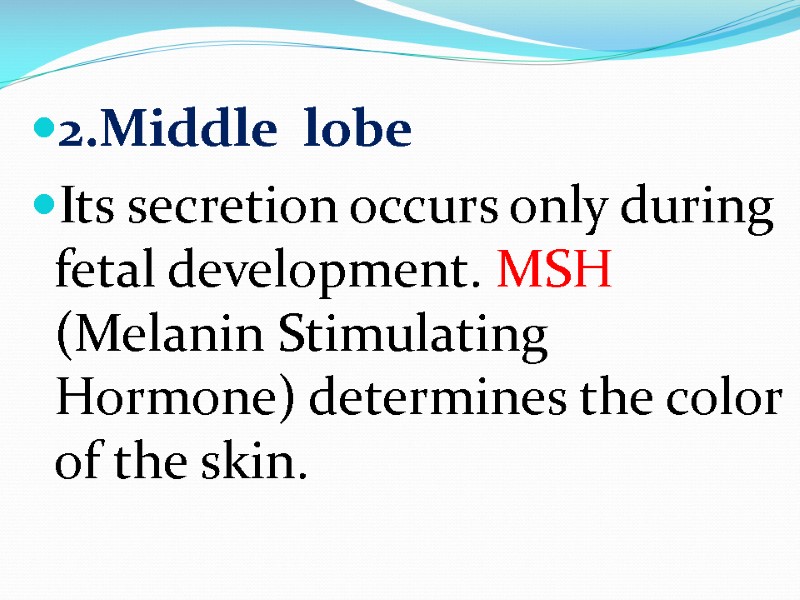
2.Middle lobe Its secretion occurs only during fetal development. MSH (Melanin Stimulating Hormone) determines the color of the skin.
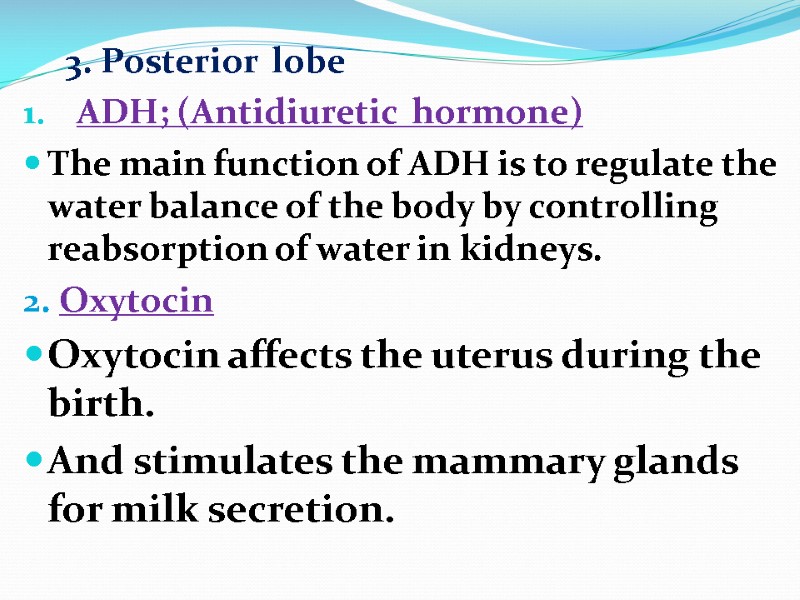
3. Posterior lobe ADH; (Antidiuretic hormone) The main function of ADH is to regulate the water balance of the body by controlling reabsorption of water in kidneys. 2. Oxytocin Oxytocin affects the uterus during the birth. And stimulates the mammary glands for milk secretion.
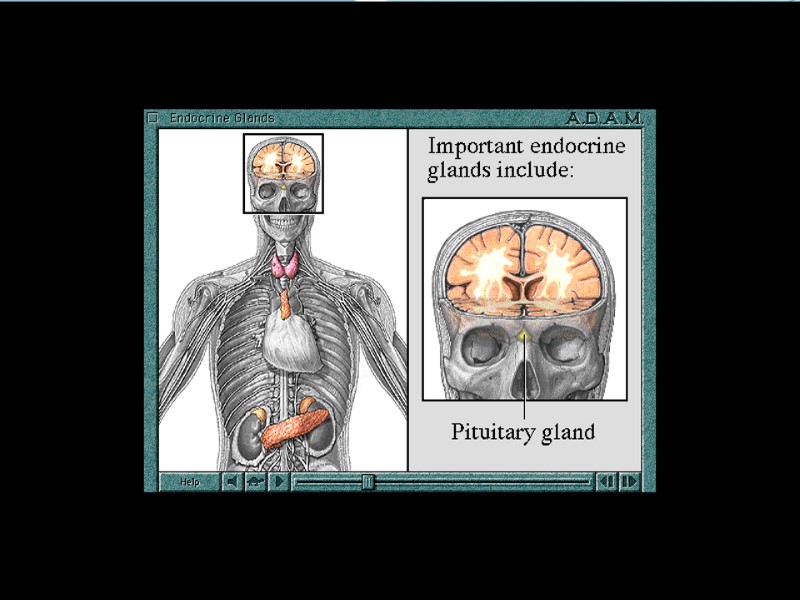
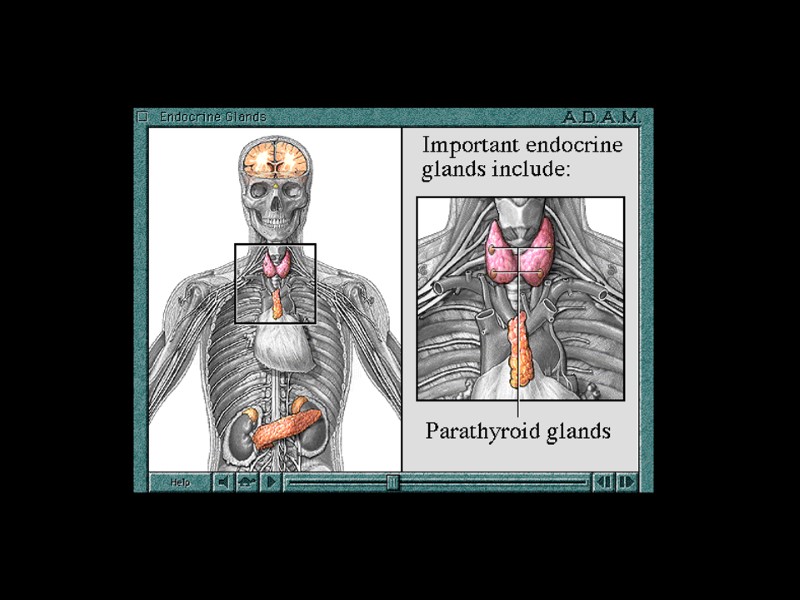
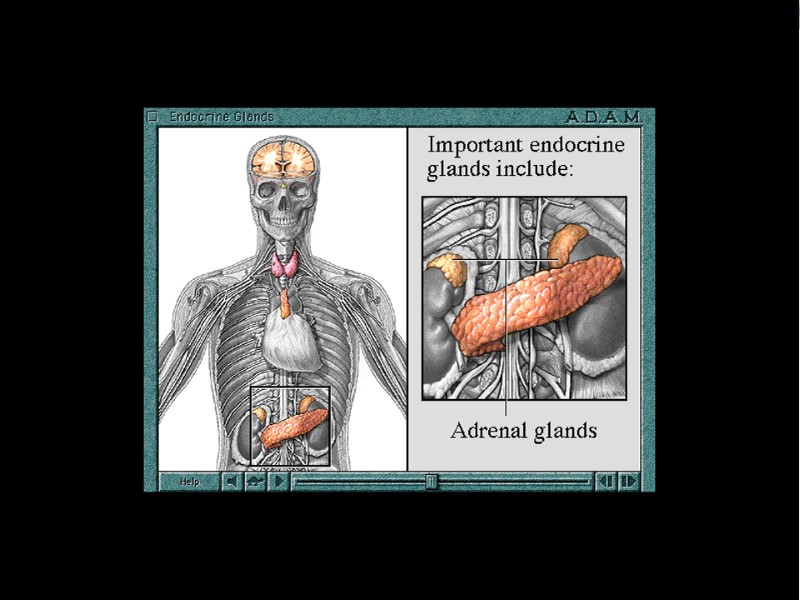
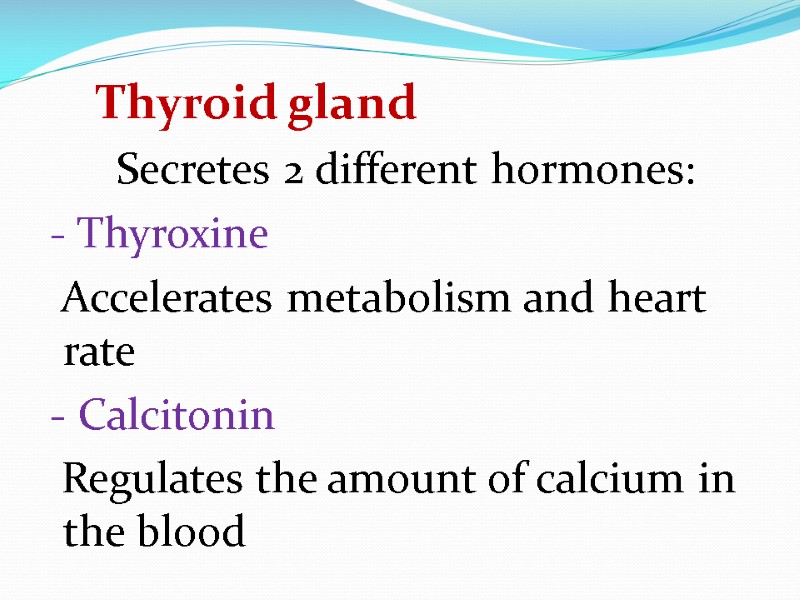
Thyroid gland Secretes 2 different hormones: - Thyroxine Accelerates metabolism and heart rate - Calcitonin Regulates the amount of calcium in the blood
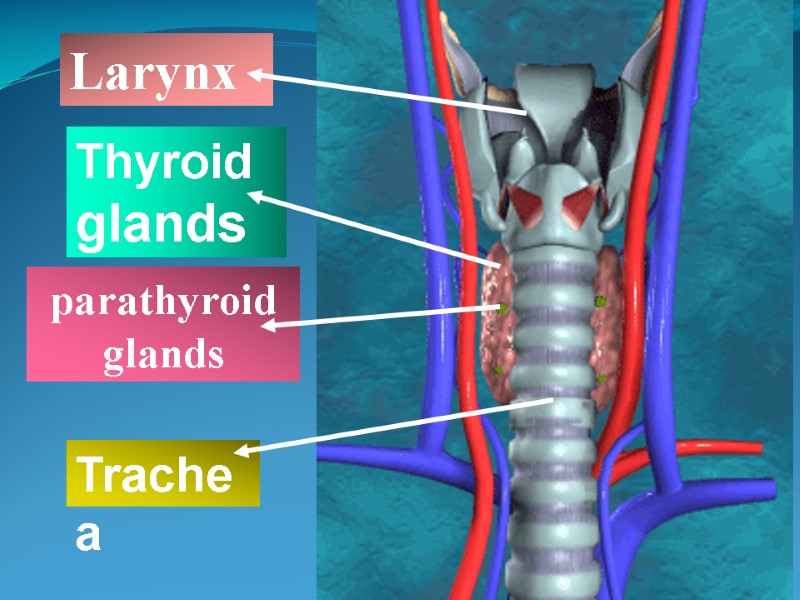
parathyroid glands Thyroid glands Trachea Larynx
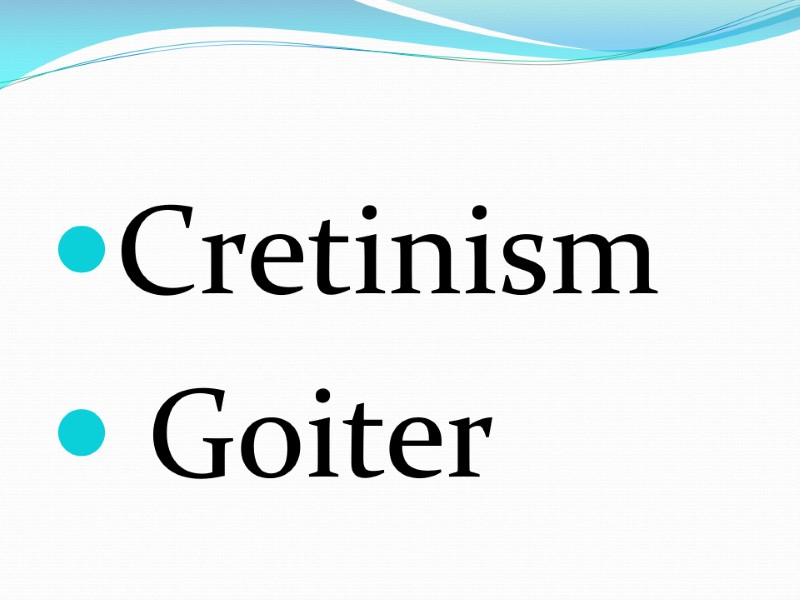
Cretinism Goiter
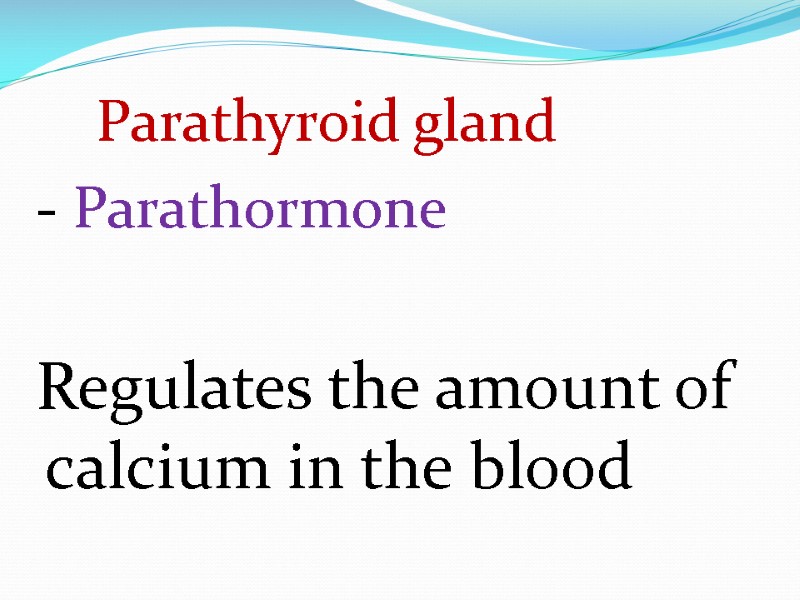
Parathyroid gland - Parathormone Regulates the amount of calcium in the blood
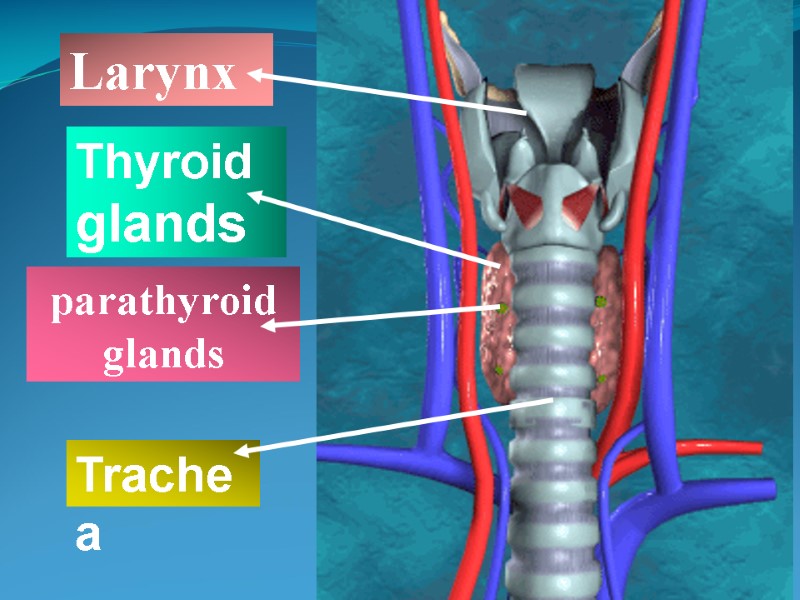
parathyroid glands Thyroid glands Trachea Larynx
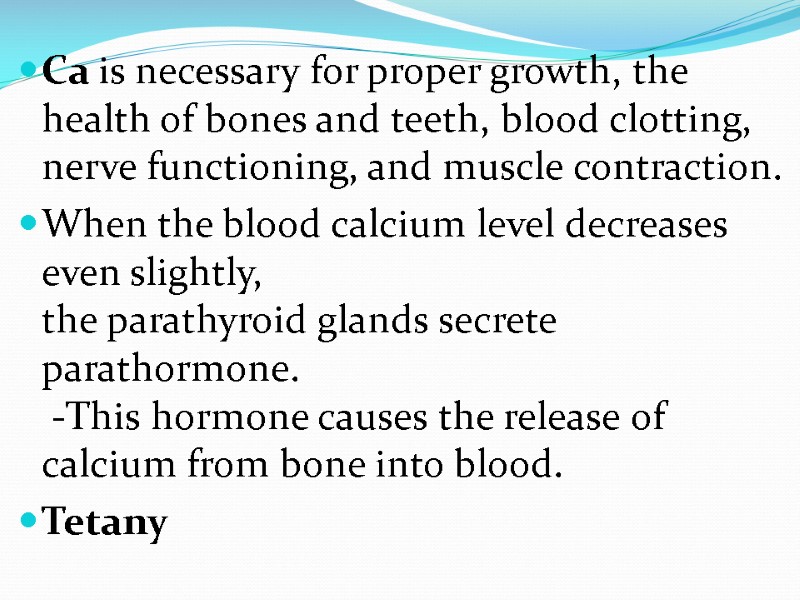
Ca is necessary for proper growth, the health of bones and teeth, blood clotting, nerve functioning, and muscle contraction. When the blood calcium level decreases even slightly, the parathyroid glands secrete parathormone. -This hormone causes the release of calcium from bone into blood. Tetany
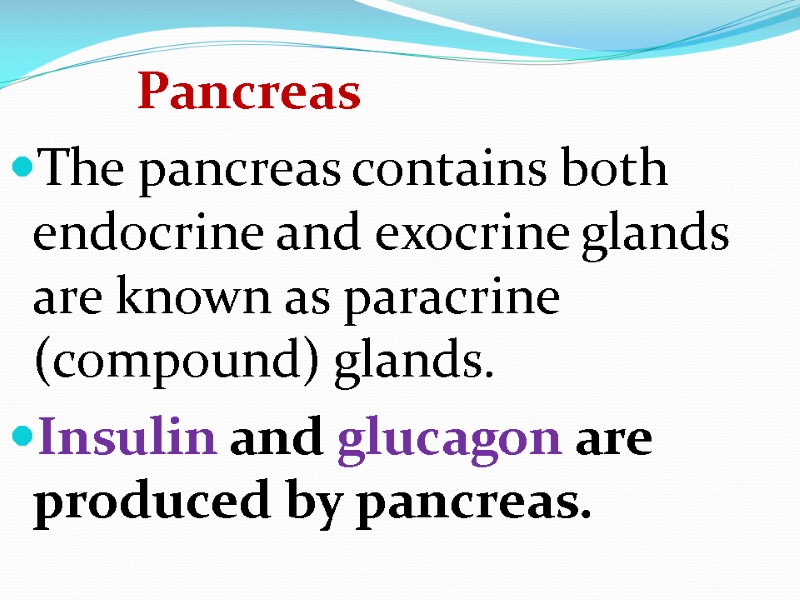
Pancreas The pancreas contains both endocrine and exocrine glands are known as paracrine (compound) glands. Insulin and glucagon are produced by pancreas.
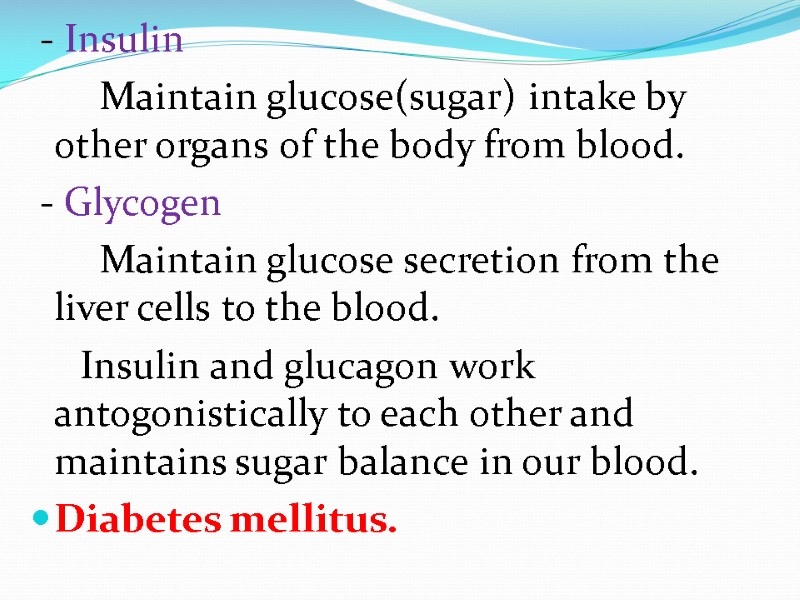
- Insulin Maintain glucose(sugar) intake by other organs of the body from blood. - Glycogen Maintain glucose secretion from the liver cells to the blood. Insulin and glucagon work antogonistically to each other and maintains sugar balance in our blood. Diabetes mellitus.
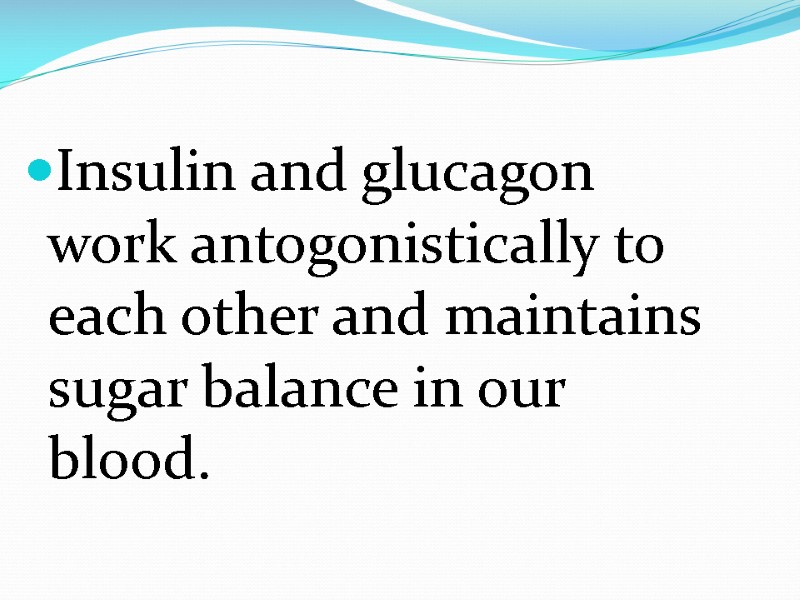
Insulin and glucagon work antogonistically to each other and maintains sugar balance in our blood.
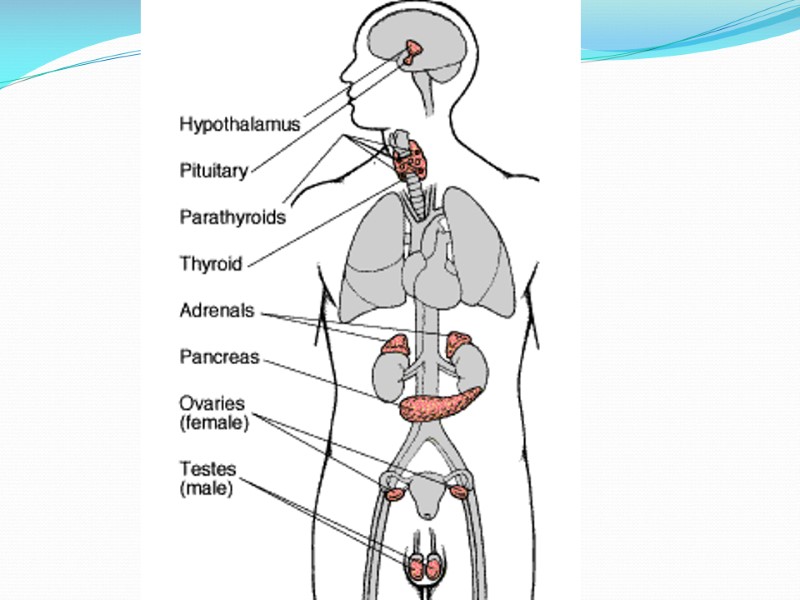
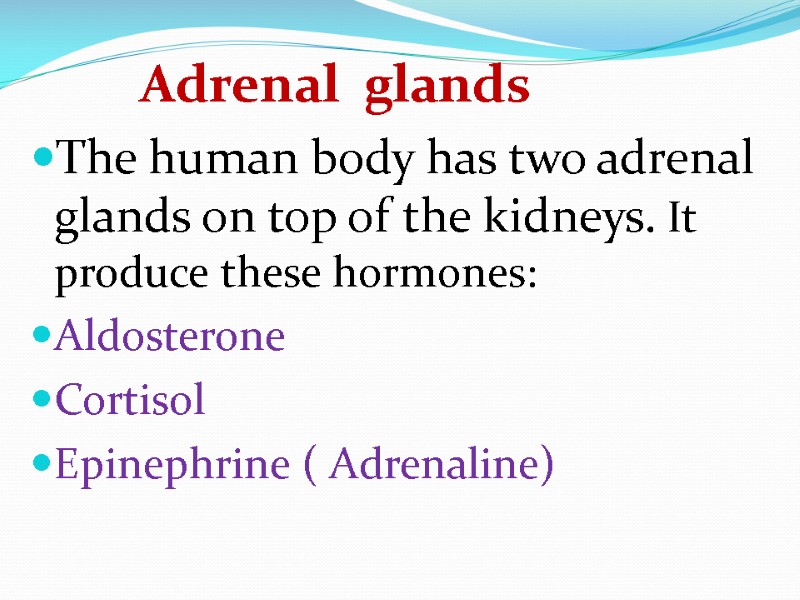
Adrenal glands The human body has two adrenal glands on top of the kidneys. It produce these hormones: Aldosterone Cortisol Epinephrine ( Adrenaline)
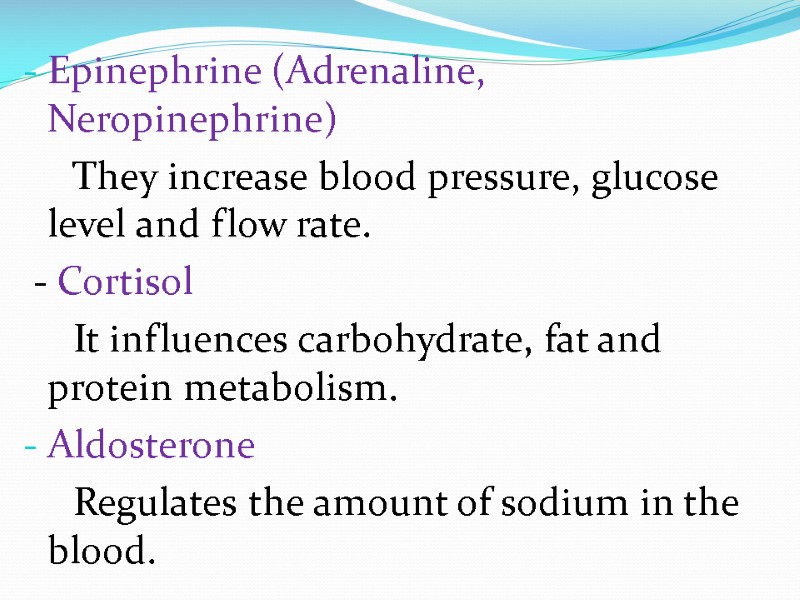
Epinephrine (Adrenaline, Neropinephrine) They increase blood pressure, glucose level and flow rate. - Cortisol It influences carbohydrate, fat and protein metabolism. Aldosterone Regulates the amount of sodium in the blood.
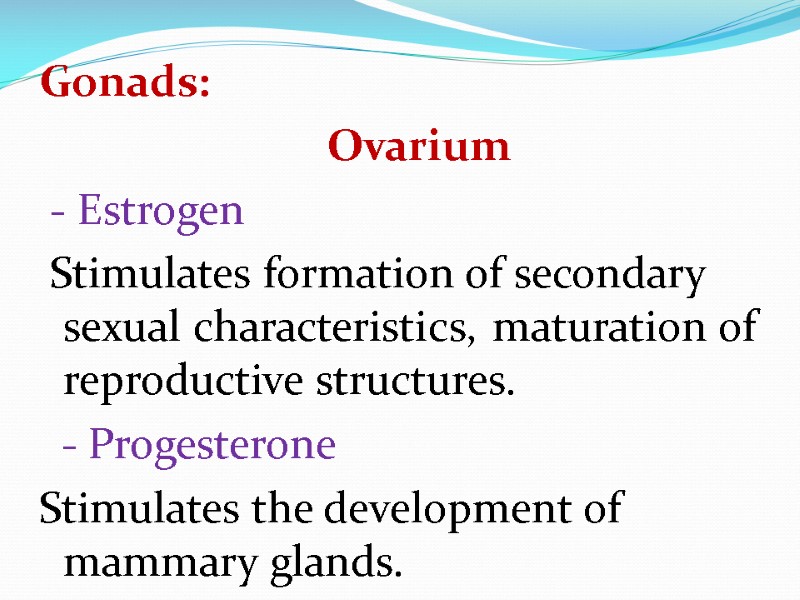
Gonads: Ovarium - Estrogen Stimulates formation of secondary sexual characteristics, maturation of reproductive structures. - Progesterone Stimulates the development of mammary glands.
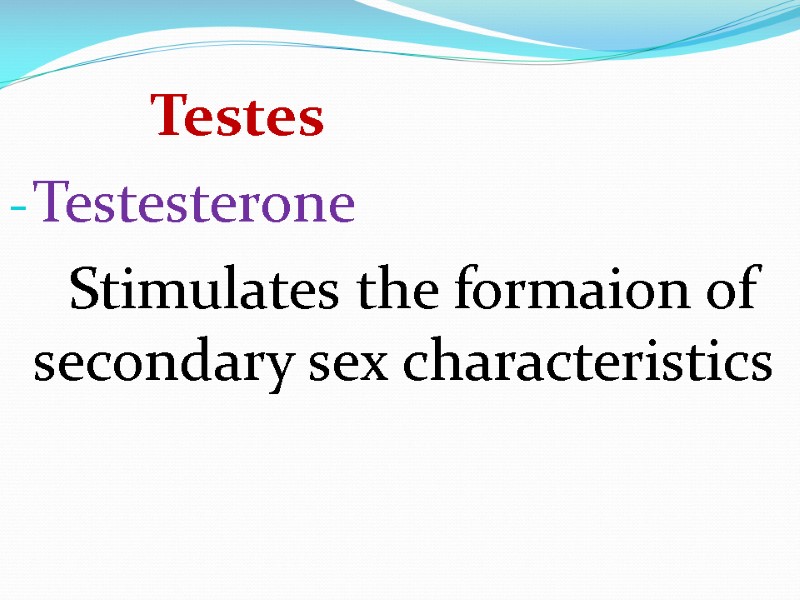
Testes Testesterone Stimulates the formaion of secondary sex characteristics
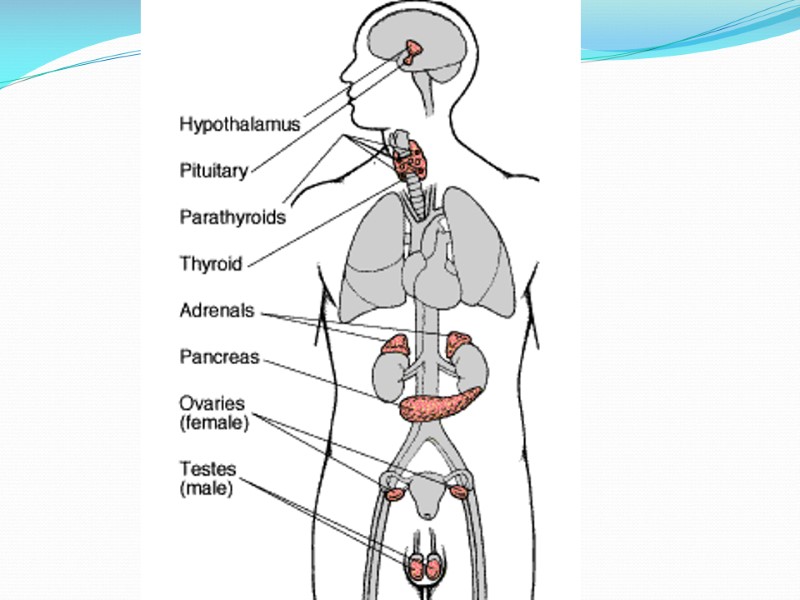
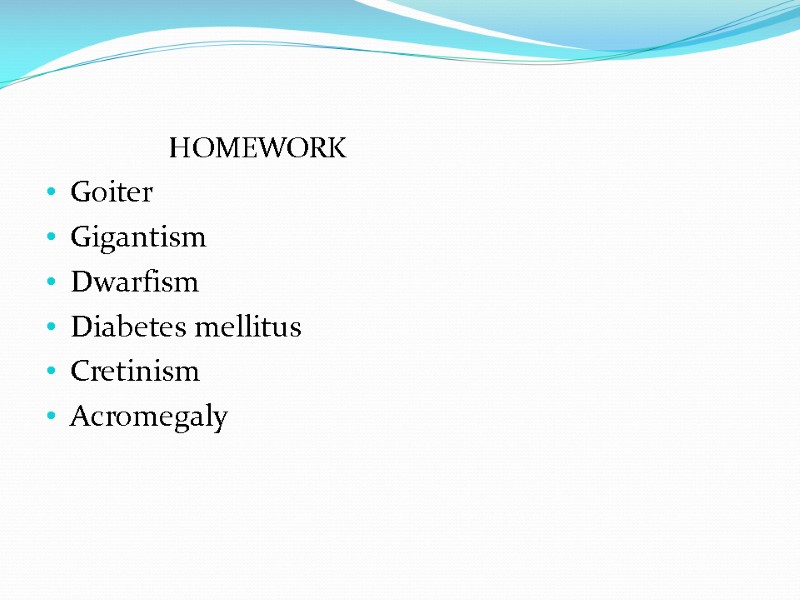
HOMEWORK Goiter Gigantism Dwarfism Diabetes mellitus Cretinism Acromegaly
9954-endocrine_system.ppt
- Количество слайдов: 47

